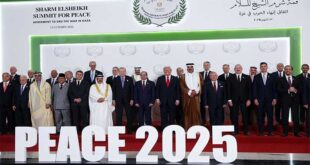Shehab Al Makahleh
Many Jordanians believe that what has happened thus far in Al-Fuhais and Al-Salt is to dissuade Jordanian leadership from proceeding further with advocating a peaceful solution to the Syrian conflict and to deter Jordan’s leadership from defending the right of Arabs and Muslims in Jerusalem.
The rising militancy in Jordan accompanied by ISIS and Nusra Front spillover into the country poses a major threat to Jordanian security forces and intelligence personnel. Since 2006, Jordan has been facing terrorisations from extremist groups.
The astonishing operation of Fuhais against security and the subsequent ramifications which were prelude to latter confrontations and manhunt in the city of Salt confirm that terrorists’ target is not a civilian, but security men who hamper these radicals from perpetrating their agendas on the Jordanian soil, using improvised explosive device (IED).
The IED planted in Fuhais have not targeted civilians although there were many amongst the fans attending the concert which was part of the town’s Festival. The terrorist’s message is clear: The direct enemy is security services. Thus, this terrorist bid proves that ISIS has taken a decisive decision to act against Jordanian security and military forces for some political and media gains, mainly at this time which is quite sensitive for all Jordanians as their country is undergoing hard economic and financial predicaments.
It is natural for Jordan to find itself today countering repercussions of post-ISIS era. The contemporary phase is regarded as a movement of ISIS members and followers to jointly work in a “decentralized” manner against what the Jordanian security forces would have been readying themselves to counter. Terrorists managed to trap a number of security in Fuhais Festival without targeting civilians. This is an indicator that they don’t want to target civilians, but rather security forces to convey a strong message that they are ready to face only armed forces to dissuade Jordanian leadership from siding by a peaceful solution to the Syrian conflict.
When Jordan coordinated with Russians, Americans and Syrian to demilitarise South West of Syria from ISIS fighters, and when Jordanian armed forces shot at a number of ISIS in the Yarmouk River area in July 2018, that has been a motive for ISIS to take revenge on Jordanian security and army
Shehab Al Makahleh
The outcome was a number of officers killed; the level of destruction and death toll amongst civilians would have been in dozens if terrorist tactic was not nipped in the bud in the first few hours as their plan was not Salt alone, but rather other places to cause as much destruction and as many fatalities as possible.
Jordan faces internal and external challenges and threats that pose a high risk to its security and stability. Such challenges are very hazardous that they cannot be unheeded by political, strategic and security apparatuses and decision-makers without being duly addressed. On August 10, 2018, an IED under a police vehicle which was guarding a music festival in Fuhais has changed the mood of Jordanians. When security had stormed a building in Salt which was a shelter for a number of terrorists, a number of security officers were killed as these terrorists were having all types of arms.
Homeland security
Generally speaking, the incidents of Fuhais and Salt are not different from previous confrontations with terrorist groups in Jordan. The IED in Fuhais led security services with a record speed to locate the whereabouts of the mother cell of the terrorists in Salt. They encircled the building which was a repository of explosives and weapons of all kinds.
Initial information about Salt security operation reveals that the terrorists are all Jordanians, who fortified themselves in a residential neighborhood to ward off suspicions and to better plan for their crimes without drawing security attention.
The bombing of Fuhais may have been an initial process of drawing attention and launching lethal attacks in other vital locations; however, security and intelligence instant response has thwarted the plan to target other areas.
Terrorism spillover
Of course, Jordan has aborted other attempts in 2017 and thanks to General Intelligence Department for their comprehensive counterterrorism and countering violent extremism strategies through the National Policies Council. In 2014, a National Strategy for Preventing and Countering Violent Extremism was formed to prevent radicalism and to counter extremism.
Terrorists’ new tactic
Terrorist tactical shift is new and no security and intelligence service can abort it in spite of tight security measures being taken. The entreaty of security men to the booby-trapped building where these terrorist were sheltering to incur many losses amongst security forces should be addressed.
The recent terrorist incidents in Irbid, Karak and Salt have something in common: ISIS which is still capable of moving cross borders to carry out terrorists’ acts through its members and followers who believe that change cannot be achieved without military power and death toll.
First published at Al Arabiya
https://bit.ly/2Mjrx0o
 Geostrategic Media Political Commentary, Analysis, Security, Defense
Geostrategic Media Political Commentary, Analysis, Security, Defense





